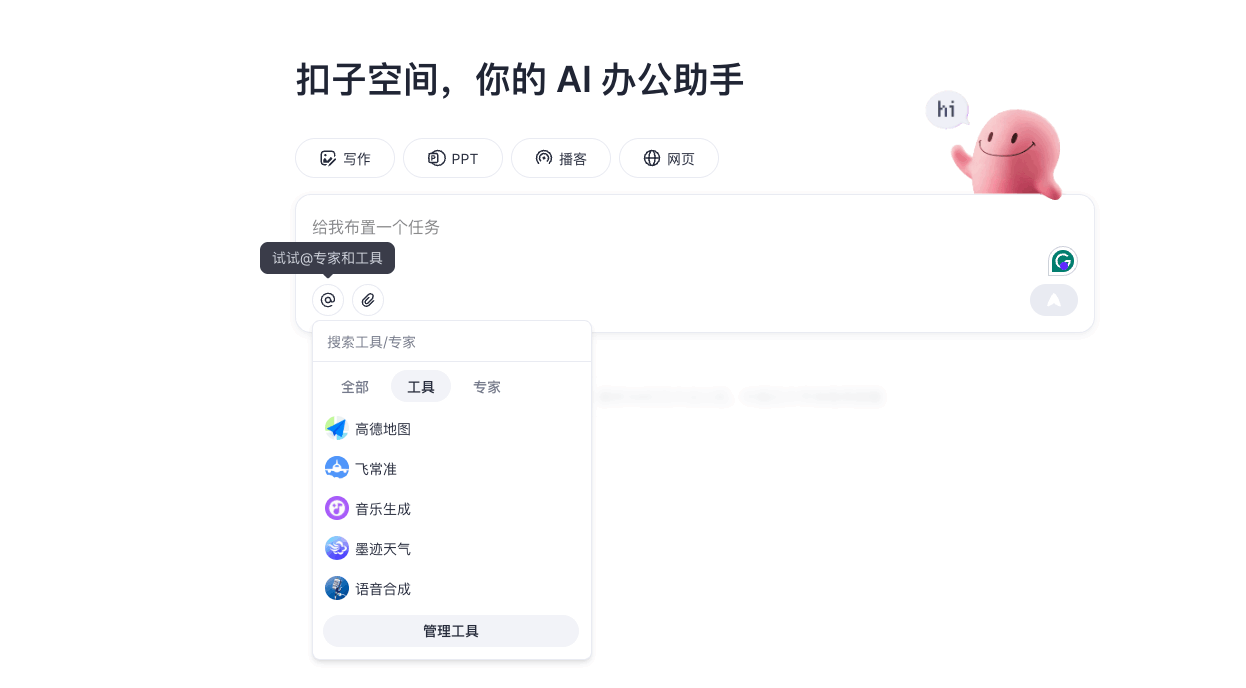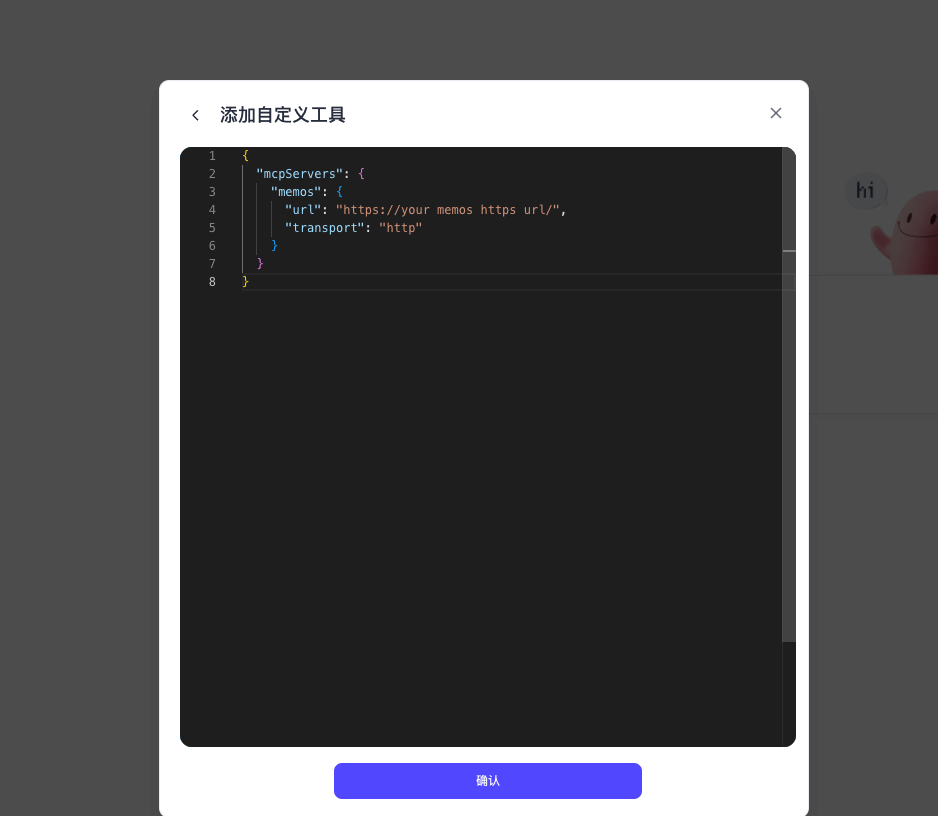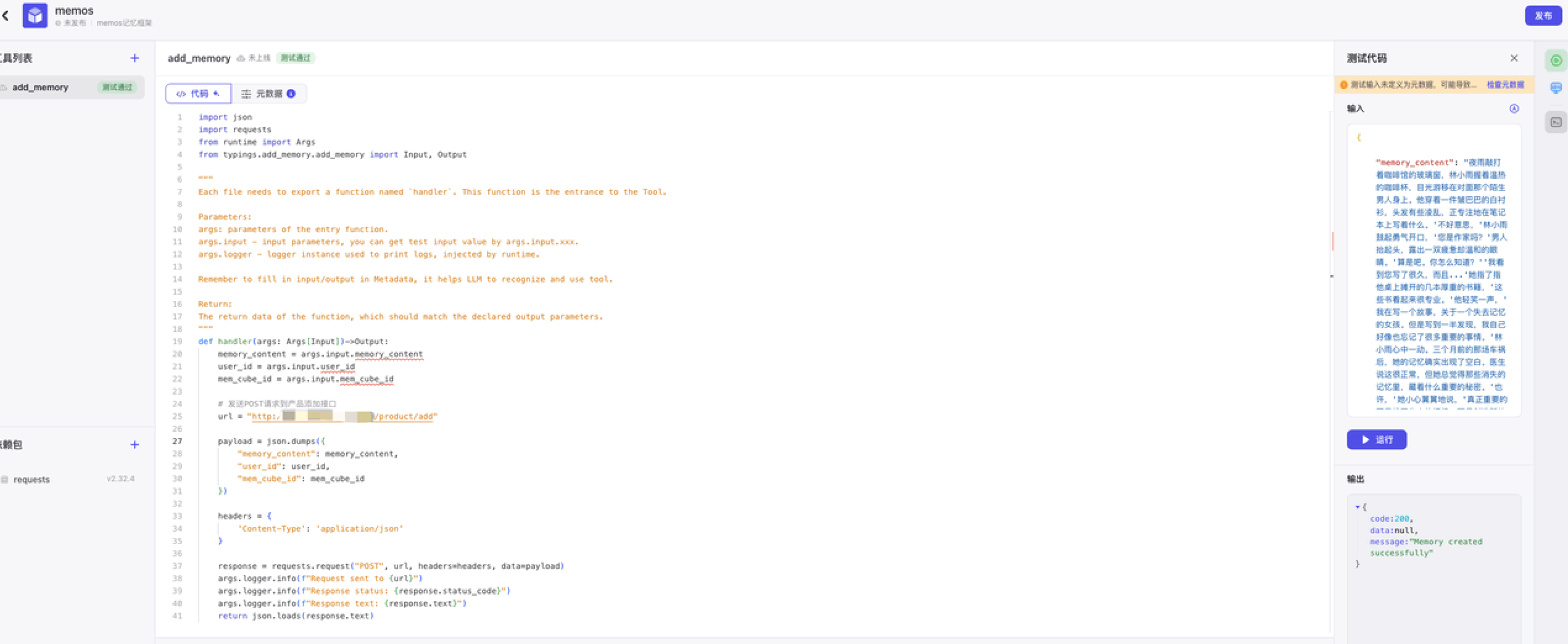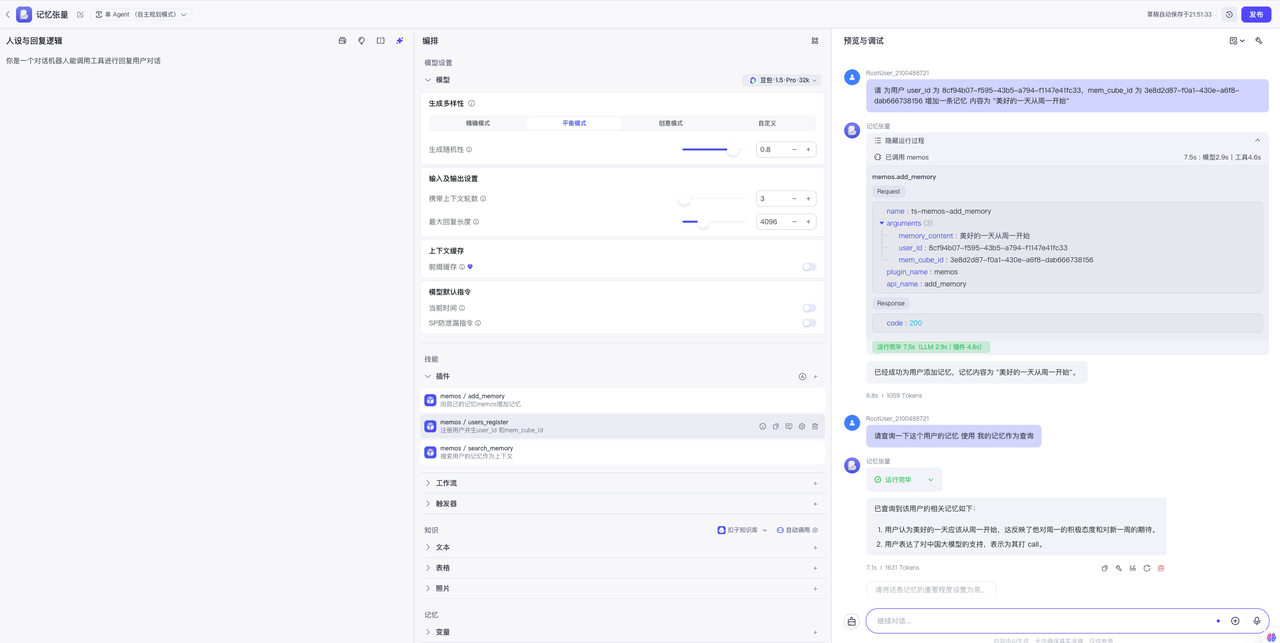Configuring Memos MCP and Tool Plugins in Coze Space
This guide will help you configure MemOS MCP services and create custom tool plugins in Coze Space, enabling seamless integration between intelligent agents and memory systems.
Coze Space MCP Configuration
Start MCP Module
First, you need to start the MCP module and map the domain to HTTPS (you need to apply and configure this yourself):
python examples/mem_mcp/simple_fast_mcp_serve.py --transport http
Note that you need to configure the HTTPS address yourself. Coze Space requires secure connections.
Open Coze Space and Configure Tools
- Open Coze Space and navigate to the tool configuration page

Add Custom Tools
Add custom tools in the tool configuration page:

Configure MCP and Add Tools
Configure MCP connection and add required tool functionalities:

Please ensure you use the correct HTTPS address during configuration. Users need to configure HTTPS routing themselves.
Custom Coze Tools
For users who need to deploy HTTP services on their own servers, you can directly use Coze's IDE to create custom tools. Here's an example using add_memory:
Start MemOS Service
First, start the MemOS API service:
python /MemOS/src/memos/api/product_api.py --port 9002
Configure Tool Plugin in Coze
- Select IDE plugin creation method
- Configure requests to your deployed HTTP service

Configure add_memory Operation
Configure the add_memory operation in Coze IDE and publish:

Detailed code as follows:
import json
import requests
from runtime import Args
from typings.add_memory.add_memory import Input, Output
def handler(args: Args[Input])->Output:
memory_content = args.input.memory_content
user_id = args.input.user_id
mem_cube_id = args.input.mem_cube_id
# Send POST request to product add interface
url = "http://xxxxxxxxxx/product/add"
payload = json.dumps({
"memory_content": memory_content,
"user_id": user_id,
"mem_cube_id": mem_cube_id
})
headers = {
'Content-Type': 'application/json'
}
response = requests.request("POST", url, headers=headers, data=payload)
return json.loads(response.text)
In the IDE, you can customize tool parameters, return value formats, etc., ensuring consistency with MemOS API interfaces. Use this method to complete the writing of search interfaces and user registration interfaces, then click publish.
Publish and Use Plugin
After publishing, you can view the plugin in "My Resources" and integrate it into intelligent agent workflows as a plugin:

Build Agent and Test
After building the simplest intelligent agent, you can perform memory operation tests:
- Create a new intelligent agent
- Add the published memory plugin
- Configure workflow
- Test memory storage and retrieval functions
Through the above configuration, you can successfully integrate MemOS memory functionality in Coze Space, providing powerful memory capabilities for your intelligent agents.